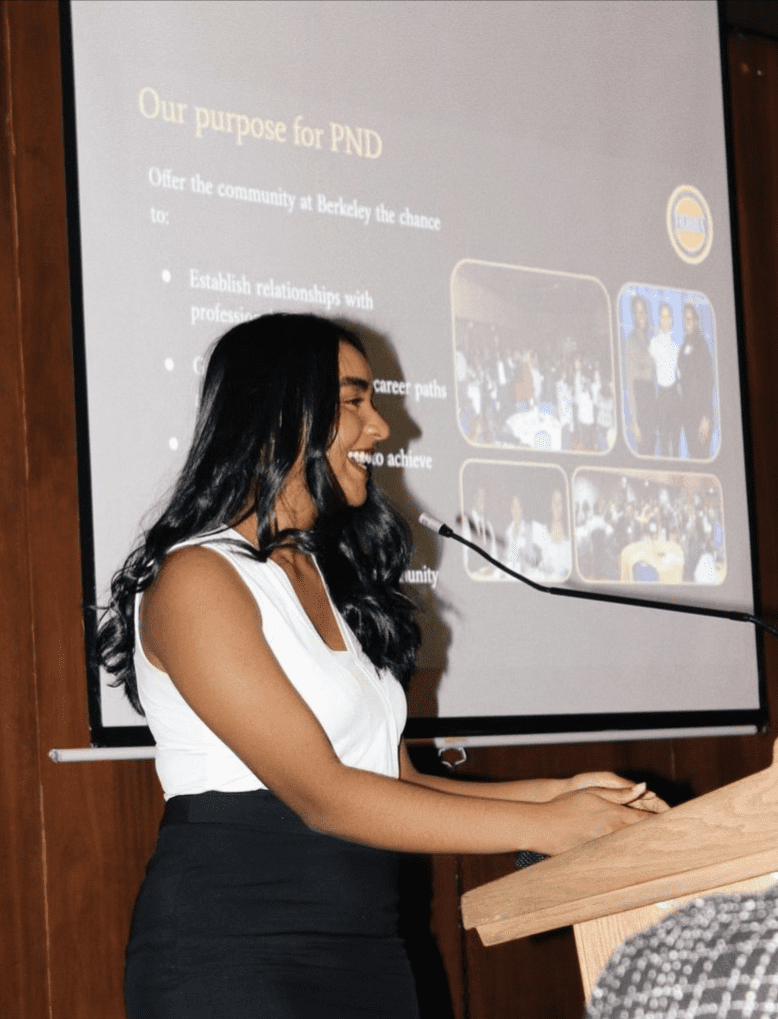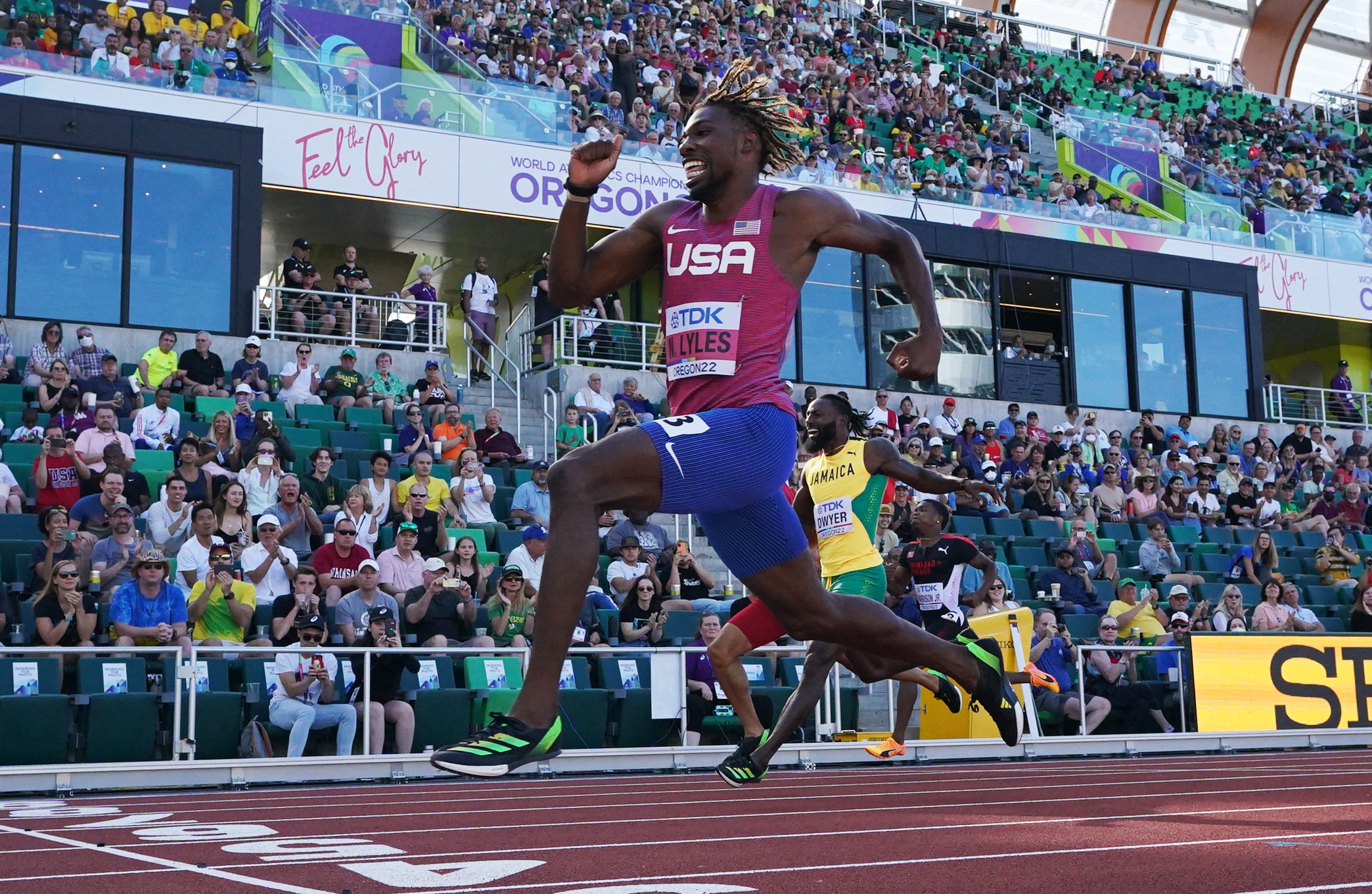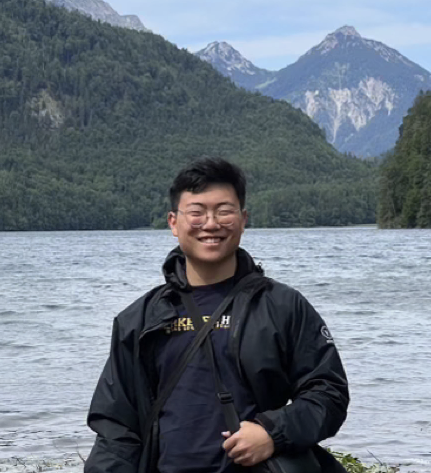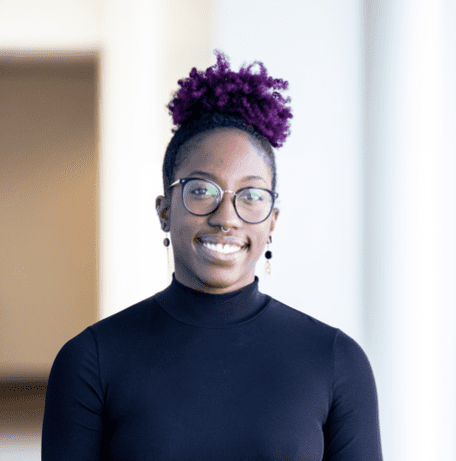Humans of Haas: Marisa Balades
Marisa Balades is a junior studying Business Administration with a concentration in Global Management through the Haas Global Management Program (GMP). She is from the Bay Area and is pursuing a career in the music industry, specifically in artist management. In this interview, I speak to Marisa about what led to her passion for music and entertainment and her work in ASUC Superb Production- Berkeley’s student-run, non-profit events organization. Marisa is one of the most passionate and hard-working individuals I have had the pleasure of knowing. She offers meaningful advice for those looking to pursue a more non-traditional path in Haas, so if that sounds like you, read on to get inspired!
Tell me a little bit about your journey in Haas. What inspired you to pursue the music industry?
Throughout my childhood, I played in the orchestra. I started with the violin, then moved into bass, and did that all through high school. The high school program was intense and I soon realized that I might not want to be a performer, but I still loved music and always had a passion for it. I would constantly listen to new artists and new music, but I honestly didn’t see it as a career at first. I grew up with immigrant parents who wanted me to go into STEM as a more stable option, so I thought that is what I wanted to do. I tried out EY and loved the company culture, but I couldn’t see myself sustaining that as a career and being happy. Last year, I reflected and thought to myself, ‘Let me think about what I want to do with my life because it is not this.’ I decided to look back at music because that was the thing that was consistent throughout my life. I wanted to return to something that was more ‘me’.
I then joined Superb because I love concerts and think live music is so much fun! Concerts were the only committee I applied for and I got in, and once that happened I knew that I wanted to look into artist management. In Superb, we have so much fun working directly with artists and connecting with them. I was with Smino asking him to sign our event poster (a Superb tradition), and I told him about my interest in artist management, and how much his music inspired me. He put me in touch with his manager, who offered me the opportunity to shadow their team at Sol Blume. I helped out backstage, honestly doing a lot of the things I would do at Superb. It was an experience that truly confirmed that this was what I wanted to do. I was then introduced to Henny, the CEO and co-founder of EQT, and I got to intern at the label in LA over the summer. Since then, I have never been happier and work is so fulfilling for me. It is so crazy to end up somewhere you don’t necessarily think you would be, but I feel like I am doing what I’m meant to do.
What is the most fulfilling part of working for ASUC Superb, and what advice would you give to people who want to get involved?
I LOVE Superb! I love the people, I had never met such an amazing group of people before I joined Superb. You have so many people in a variety of majors, everything from media studies to physics to business. Yet, we are all conjoined by the fact that we have a deep passion for great music. Everyone has their taste= we have people who love Indie, Hip Hop, or even Heavy Metal=but we all respect each other’s different tastes. I think that is what creates a symbiotic environment. Working with people who genuinely love putting together live music shows for Berkeley and watching everyone get hyped for good music brings me so much joy. Even being in London right now, seeing the videos of everyone enjoying themselves and for students to be able to have accessible music experiences makes me so happy. Tickets to concerts can be expensive, and they are usually not accessible to everyone, but being able to provide that with the best group of people I’ve met at Berkeley has been top-tier.
If you think you want to do music as a career, Superb is a great place to start. A trend I notice with a lot of older, more experienced people at my job is that they all mainly started in live music because it is more accessible to put on shows than to jump straight into management. Getting involved with live music can help determine if it is something you want to consider as a career. My advice to people who want to get involved is to reach out to people in Superb. Talk to members and attend information sessions! The most important thing is to demonstrate that you are truly passionate about music, and this shows. Every single person in Superb has such a deep love for music, no matter the genre, that is what we put above all. Ask yourself if you truly have that deep love of music, because if you do then Superb is meant for you. Also, if you enjoy the Superb events and have a passion for learning more about how live music works, it is a great way to explore.
Walk us through the process of preparing a Superb event. How do you choose which artists to present?
Every time there is a show, it starts with an explanation of the show: What is the show? What kind of artist are we booking for the show? What type of genre are we hitting? From there, everyone gets to pitch 2-3 artists that they would like to see in a show, aiming for a headliner and an opener. Then, we have an in-person meeting where team members pitch their artists in real-time, and we narrow it down from there. Then, we vote off of the narrowed list of artists. When we have our top 5 artists, managers and booking coordinators reach out to those artists and pull quotes. From the quotes, we see what is reasonable for our budget. After getting the quotes, we draft offer sheets for the artists and their agents to negotiate prices, and if the artist accepts, we can go on with the contract. This whole process typically happens 1 to 2 months before a show happens.
Day of is chaos! We have to be there at 8 am, and then from then on out, we spend the whole day setting up the stage, running through sound checks, and making sure people who are in charge of certain areas are doing their job. It’s a lot of little details and logistics to make sure everybody is on top of things. We always organize transportation for the artist on the day of, whether that be Uber or sometimes we drive, which is the fun part! We are constantly delegating tasks and working collaboratively. It is important to know who is in charge of hospitality, who is picking up the artist, who is managing security, who is in charge of sound, etc.
Then comes showtime, which is obviously the best part! It is kind of a sigh of relief when we get to enjoy the music. We still have to pay attention and manage the barricades, making sure everything is super secure for the artists. We always watch out for the audience as well- we always have water to hand out and things like that. After that, we have to make sure to clean up and break down all of the equipment. Our days are usually 8 am to 11 am the next day, that’s just how it goes. We are all tired, but after every show, we always have a meal with each other to celebrate a job well done.
What are the biggest tips you have for people wanting to break into the music and/or entertainment industry?
The biggest thing for me was talking to as many people as I could. I think there is a lot of power in just reaching out to people, even with a cold email. If you feel like you’re annoying, you’re probably doing the right thing. Especially in music, something people have to realize is that it is truly a relationship-based industry. The people in your network will have an impact on your future opportunities, it’s a given. Often, the job isn’t necessarily there, you create it. You have to get connected with people and figure out, “where can I place myself?” Talk to everyone you possibly can in all different roles, even if you may not want a certain job. If you work in music you will have to know what other people do because you will be interacting with them constantly. My biggest piece of advice is to never be afraid to put yourself out there and get to know people.
Additionally, always tell people what you want to do in music. It’s as simple as that. You have no idea how powerful that is because people will see your ambition and want to help you. Constantly speaking about your goals and affirming them is almost a form of manifestation. You never know who in your network will be able to provide you with the next opportunity. Focus on building meaningful relationships because you want them, and be careful not to be transactional. People will see right through you if you are not being authentic, but I think it will come naturally if you’re genuinely passionate about music. Be genuine about getting to know people and getting to know what they do. What has helped me is being open and being a sponge. It is admitting, “I don’t know everything about what I’m doing, that’s why I am talking to so many different people.” It is through talking to people that I felt affirmed in my path, and by taking internships I learned so much more about what I wanted to do.
I know that you are deeply passionate about supporting emerging artists and creating more fairness in the music industry. How do you feel the industry can improve in this area?
This one is tough. As I’ve been in this space longer, I’ve realized that there definitely are relationships with labels that can go well and that can be a good fit. I have learned that there is an ability for artists to work very synergistically with labels. Not every artist wants to be huge, some artists just want to put out music consistently and that’s all they want to do. They don’t necessarily need something out of it, they just want to have the structure to put out their music. Other artists want way more than that, and it’s fair. If an artist wants to reach superstar, global status, and fame, then there is a need for them to work for a larger label to gain access to those things. At the same time, some artists get into deals that are not as equitable or fair. Labels control when you can release music, so if an artist doesn’t feel like a label is advocating for their career, they can feel like they missed out on the opportunity to expand from where they were.
A major thing I’ve found is that there are a lot of different sorts of relationships that an artist can have with a label or management, but what matters the most is whether it’s the right one. I have heard from artists that they have had other, negative experiences with that. I know that is not necessarily a solution to the question that was asked, but I think it is more of an in-progress situation. I am still learning, and where I stand now is that there are a lot of different easy to go about it, but it is most important for artists to pick the right environment for their career and the things that they prioritize for their music. Even big artists have had issues with their labels before, because music is a perfectly competitive and saturated market, but finding the right people that know and prioritize what an artist wants is so important.




